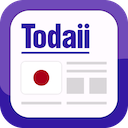Is Mastering Basic Japanese greetings really this easy?
Learn Japanese - Master Basic Greetings in Japanese Fast!
1477 viewIs Mastering Basic Japanese greetings really this easy?
Yep, you will learn a few tips to master basic Japanese greetings fast with this introduction lesson.
In this lesson, you are going to learn how to say hi, how are you in Japanese and how to answer.
It’s super easy and it only takes 3 minutes. Let’s learn a short dialogue.
So here is the typical conversation you hear every day in Japan.
こんにちは。 - "Hi" げんきですか。 - "How are you?" げんきです。 - "I am fine."
こんにちは。 - "Hi" or "hello". こ、ん、に、ち、は。
こんにちは. こんにちは is a general greeting meaning "hi" or "hello".
It also means "good afternoon" as one of the greetings for the day
But you can say こんにちは。All day long as a greeting when you meet people.
Next we have げんきですか。 - "How are you?". Let’s take a closer look.
げんきですか。 - "How are you?". げ、ん、き、で、す、か。
げんきですか。 げんき means "healthy", です is basically same meaning as "to be" in English, か is a sentence ending particle that can be used to make a question.
げんきですか。 literally means "are you healthy?" but it is used to mean "how are you?."
Now the easy part, answering the question. To answer the question げんきですか。 - "how are you?"
you just say げんきです。 - "I am fine."
You just have to drop the か(ka) at the end. げんきです。 - "I am fine."
げ、ん、き、で、す。 げんきです。
Let’s take a look at these two lines. Person A: げんきですか。 - "how are you?" Person B: げんきです。- "I am fine."
The only difference is, you drop the か when answering the question.
See this conversation. We are going to shorten it down. Ta-dah!
Here we have the same conversation げんき? - "How are you?" げんき。 - "I am fine."
The only difference is the intonation げんき? げんき。 - "I am fine."
Now be careful. This is a very informal conversation.
Don’t use it with your teachers or in business situations.
Now before you go, let’s look at two other responses to "how are you".
First we have.. まあまあ。 - "so so". さいあく。 - "Bad" or "I am not doing good at all".
So now let’s practice. So, I will ask you how you are and you respond.
こんにちは、げんきですか。
げんきです。 Good job! Now, you ask me how are you.
げんきです。 まあまあです。 さいあくです。 げんきですかー!
げんきがあれば、なんでもできる。 げんきですかー!
No word list

君をのせて

大嫌い

「焼鳥バーガー」 居酒屋大手がコロナ対策で専門店(2021年8月23日)

GUが低価格を維持 原材料高騰で値上げ相次ぐ中(2022年9月12日)

はなちゃんねんねセット

オシャレでかわいい♡ドレス・ド・オムライスの作り方 | How To Make Dress de Rice Omelette

日航機墜落事故から36年 灯籠点灯し犠牲者に祈り(2021年8月12日)

好きなことで、生きていく HIKAKIN YouTube Long ver

上野の双子パンダ…2歳を前に「親離れ」 離乳も【知っておきたい!】(2023年4月28日)

みずほ 全国ATМ拠点にスピーカー付きカメラ(2022年4月16日)


You need to upgrade to a premium account to using this feature
Are you sure you want to test again?

Please upgrade your account to read unlimited newspapers


Todaii Japanese is a website for learning and reading Japanese news integrating various features such as dictionary, practice, testing, ...
https://todaiinews.com
todai.easylife@gmail.com
(+84) 865 924 966
315 Truong Chinh, Khuong Mai, Thanh Xuan, Hanoi


